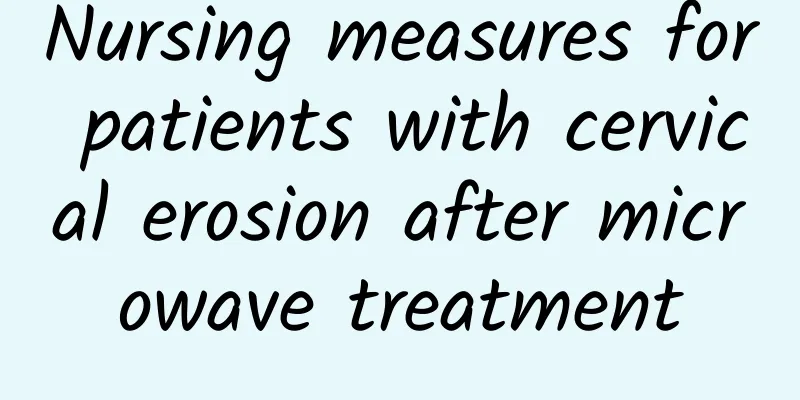Can cone biopsy of cervical precancerous lesions be cured?

|
Cervical cancer is a common disease that endangers women's health. It mostly occurs in married women aged 35-55 years old who have given birth to many children. About 95% of them are squamous cell carcinomas and 5% are adenocarcinomas. Cervical precancerous lesions, namely atypical hyperplasia of the cervix, have a gradual evolution process in the occurrence and development of cervical cancer, which can take from several years to decades. It is generally believed that this evolution process goes through several stages: hyperplasia, atypical hyperplasia, carcinoma in situ, early invasion, and invasive cancer. What is the treatment for cervical precancerous lesions? Can cervical precancerous lesions be cured by cone biopsy? Treatment of cervical precancerous lesions by cone cutting Once cervical precancerous lesions are diagnosed, they must be taken seriously. But at the same time, we must not be too nervous. We must despise it strategically and pay attention to it tactically. "Immediate diagnosis and treatment, follow-up examinations and prevention can effectively control it." When cervical precancerous lesions are detected, the treatment of cervical precancerous lesions is the most concerned issue for patients. According to research, CIN1 patients have a nearly 60% chance of natural reversal, so if the lesion is not too large, close follow-up or local physical therapy, such as electrocautery, laser and microwave therapy, is sufficient. This treatment can be completed in a gynecological clinic and the treatment process is basically painless. CIN2/3 patients can be treated with local excision, commonly used methods include loop electrosurgical excision procedure (LEEP) and cervical cone resection. Through local excision of the lesion, both fertility function and satisfactory treatment effect can be preserved. Surgery such as loop electrosurgical excision only needs to be performed under local anesthesia and is completed in about 5 to 10 minutes. There may be vaginal discharge for a period of time after the operation, and the surgical wound will heal in 4 to 6 weeks. The couple can resume their sexual life 3 months after the operation. Cervical precancerous lesions are not to be feared. Early detection and early treatment can even achieve a 100% cure rate. Experts recommend that women start cervical cancer screening at the age of 21 or after three years of sexual activity until the age of 65, and have a cervical cytology smear test once a year. Timely detection and diagnosis of cervical precancerous lesions and cone cutting treatment can achieve the purpose of preventing cervical cancer. |
<<: Cases of Cervical Precancerous Lesions Cured
>>: How much does it cost to treat a large uterine effusion?
Recommend
Two major internal and external factors that cause ovarian cysts
The cause of any disease can be discussed from tw...
What is vulvar leukoplakia?
What does vulvar leukoplakia look like? 1. Vulvar...
Don't store fat! Learn 3 smart ways to eat dinner
Eating at night will only make you fat It is ofte...
How much does it cost to treat ovarian cysts? How to treat ovarian cysts?
How much does it cost to treat ovarian cysts? How...
What are the causes of spontaneous abortion?
Spontaneous abortion usually occurs in early preg...
There are several reasons why uterine fibroids affect pregnancy.
If uterine fibroids are severe, they will affect ...
What should you pay attention to in daily life when you have ovarian cysts?
Ovarian cysts are usually caused by irregularitie...
Is cervical erosion related to wearing an IUD? Is it contagious?
Cervical erosion has no direct relationship with ...
How to prevent cervical erosion?
Cervical erosion is a common gynecological diseas...
What are the symptoms of uterine fibroids? What are the manifestations of uterine fibroids?
Many women want to know what the symptoms of uter...
What are the early symptoms of ectopic pregnancy?
Among gynecological diseases, ectopic pregnancy i...
What kind of porridge should I drink to replenish blood after getting uterine fibroids? What kind of soup should I drink after getting uterine fibroids?
What kind of porridge should I drink to replenish...
Does cervical erosion of degree 2 need treatment?
Does cervical erosion of degree 2 require treatme...
Can I get pregnant with ovarian cysts? What are the symptoms?
Can I get pregnant with ovarian cysts? What are t...
3 effective acupuncture points to reduce abdominal fat and relieve bloating
Whenever you see delicious food, you can't he...









